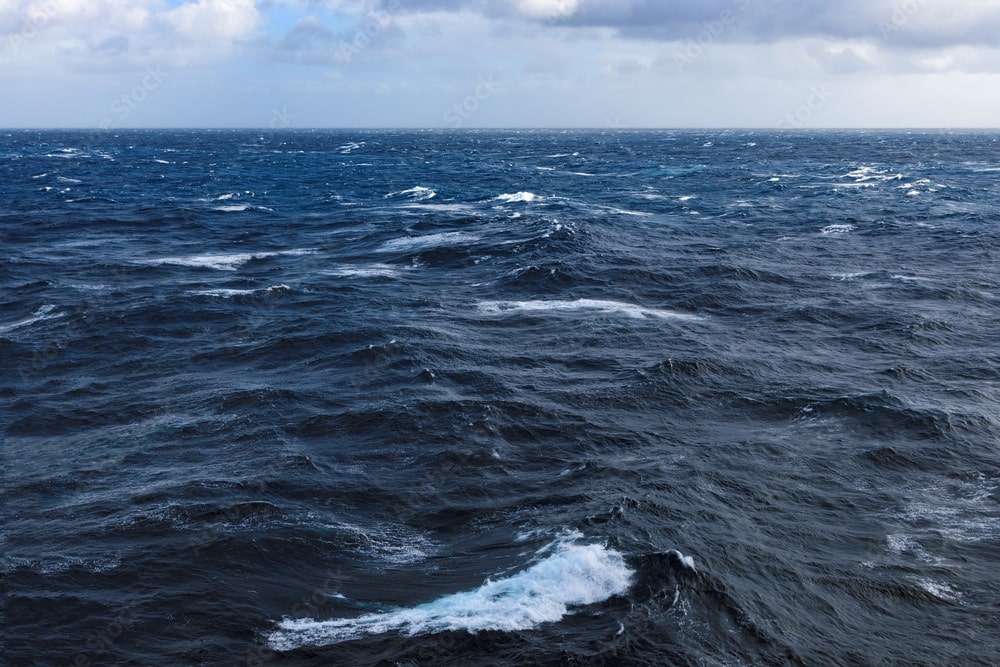The Atlantic Ocean is the second-largest ocean on Earth, and its vast waters hold countless mysteries that fascinate even the most seasoned explorers. This ocean has witnessed historic events, natural wonders, and an incredible diversity of life. Did you know that the Atlantic Ocean stretches across the width of the Earth, connecting five continents? Its depths hide astounding ecosystems, and it is often featured in numerous legends. Below, you’ll find interesting facts that reveal the fascinating details about this majestic ocean.
- The Atlantic Ocean covers an area of over 106 million square kilometers. It accounts for about 20% of the Earth’s surface and is the second-largest ocean after the Pacific. The Atlantic has a distinctive elongated shape, stretching from north to south, making it unique compared to other oceans.
- The deepest point in the Atlantic Ocean is located in the Puerto Rico Trench, reaching a depth of 8,376 meters. This region is one of the least explored parts of the ocean, as such immense pressure can only be withstood by specialized equipment. Scientists are intrigued by the potential to discover new life forms in this trench.
- The average age of the Atlantic Ocean’s waters is approximately 200 million years. The ocean’s waters are continuously mixed by currents, including the Gulf Stream, which has a significant impact on the climate of many countries. These currents help distribute heat evenly across the planet.
- The Atlantic Ocean touches the shores of 67 countries, including regions as diverse as Europe, Africa, North America, and South America. This makes it a crucial part of the global economy, supporting international trade and maritime development. Its waters serve as vital routes for transporting goods, oil, and other resources.
- The Gulf Stream is one of the most powerful currents in the Atlantic Ocean. It carries warm waters from the Gulf of Mexico to the North Atlantic, profoundly influencing Europe’s climate. Without the Gulf Stream, the weather in Western Europe would be much colder.
- The Mid-Atlantic Ridge, located on the ocean floor, is one of the longest mountain ranges on Earth. It spans over 16,000 kilometers and is formed by the divergence of tectonic plates. Active volcanic processes along the ridge create new oceanic crust.
- The waters of the Atlantic Ocean are home to thousands of species, including sharks, jellyfish, whales, coral, and rare deep-sea fish. The ocean hosts many endemic species that cannot be found anywhere else on the planet. Its ecosystems range from coral reefs to cold, deep-sea trenches, showcasing immense biodiversity.
- The Atlantic Ocean played a pivotal role in the discovery of the New World. It was across this ocean that Columbus sailed in 1492, opening the way to the Americas. Since then, the Atlantic has become a vital transport artery connecting continents.
- Unique phenomena such as the Bermuda Triangle are often associated with the Atlantic Ocean, where reports of disappearing ships and planes have captured imaginations. While scientists suggest that many of these incidents can be explained by natural factors, the area remains a source of myths and legends. Its mystery continues to attract travelers and researchers from around the world.
- The climate of the Atlantic Ocean region is heavily influenced by seasonal hurricanes. These storms originate in tropical latitudes every year and move inland, causing significant damage. However, they are also an essential part of the natural cycle, contributing to the renewal of ecosystems.
- Undersea cables laid across the Atlantic Ocean provide communication between continents. These cables carry a substantial portion of internet traffic and phone calls. This infrastructure is the backbone of the modern information world.
- The Atlantic Ocean is a rich source of natural resources, including oil, gas, and fish. Its waters provide food and livelihoods to millions of people, as fishing is a critical industry in many countries. The extraction of minerals from the ocean floor is also a growing field in the region.
- The ocean conceals numerous shipwrecks, which have fallen victim to storms, wars, or pirate attacks. One of the most famous is the Titanic, which sank in the North Atlantic in 1912. These wrecks are like underwater museums, preserving the history of humanity.
The Atlantic Ocean is an incredible blend of nature, history, and science. Its vast expanse reminds us of the grandeur of our planet and our dependence on the oceans. The fascinating facts about this ocean unveil its uniqueness and its significance for all humanity. By studying the Atlantic Ocean, we not only learn more about our planet but are also inspired by its unparalleled beauty and majesty.





